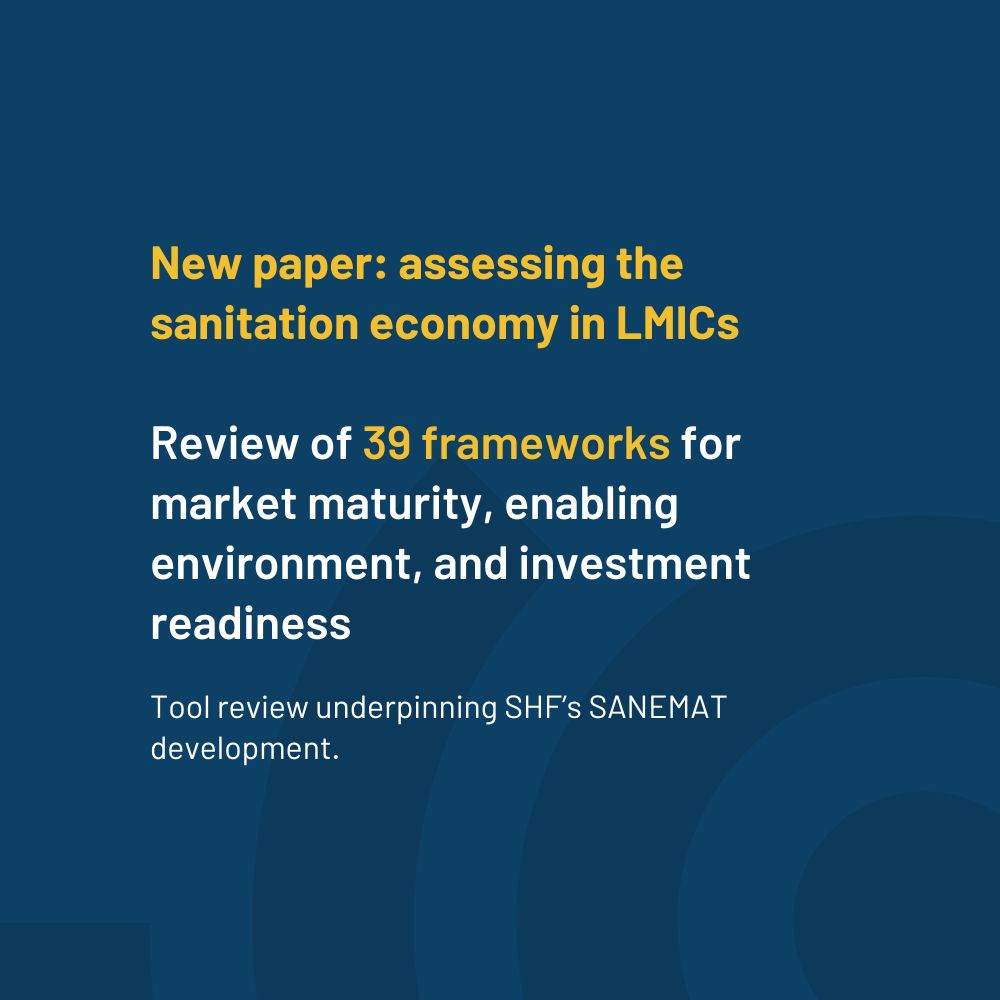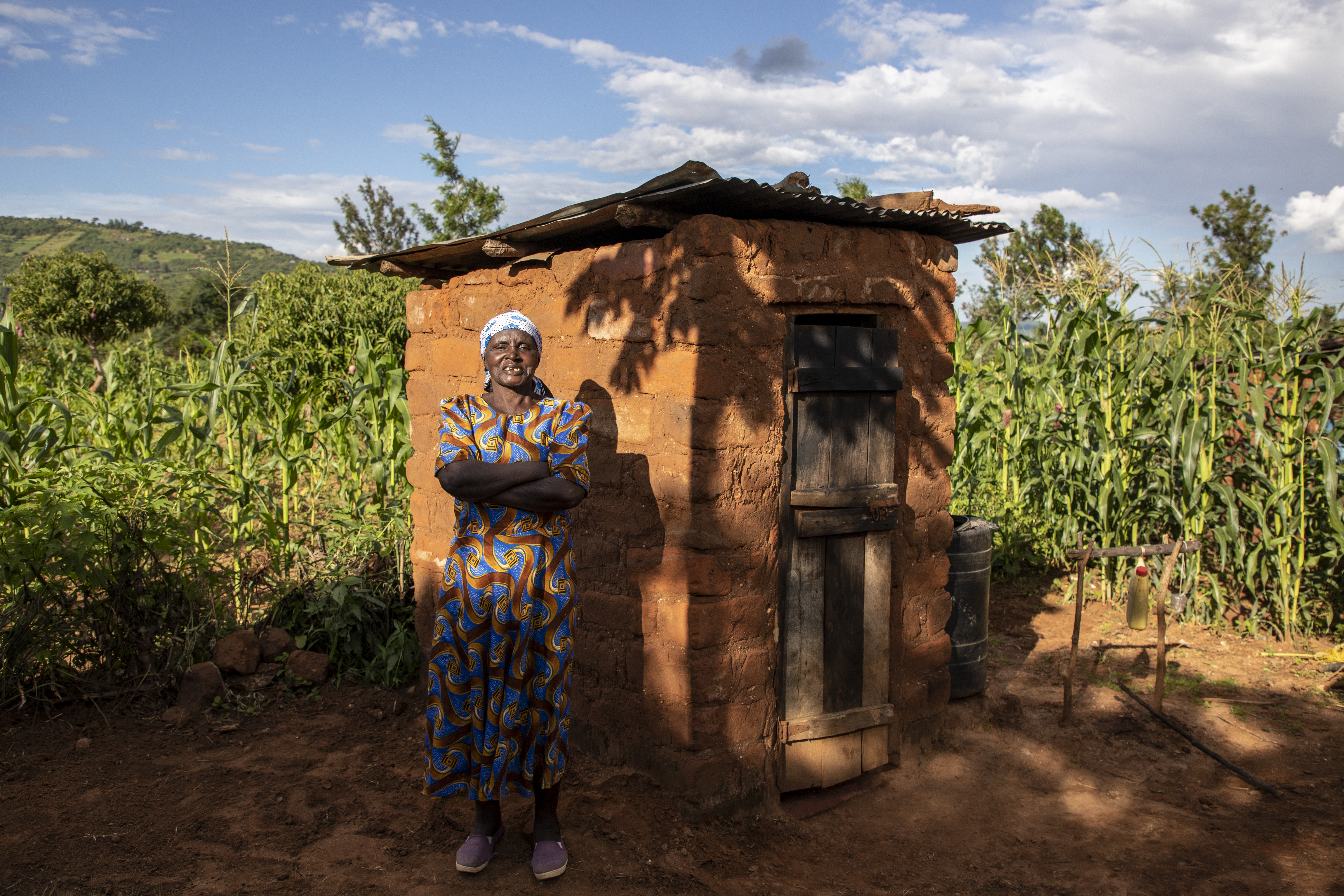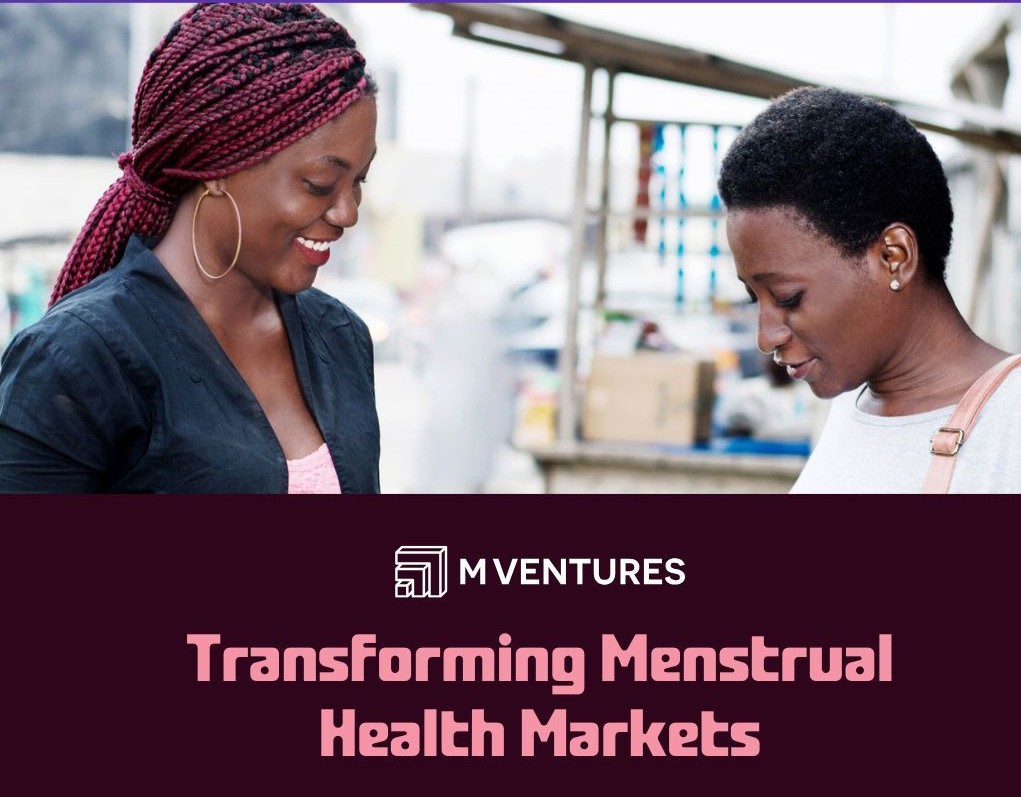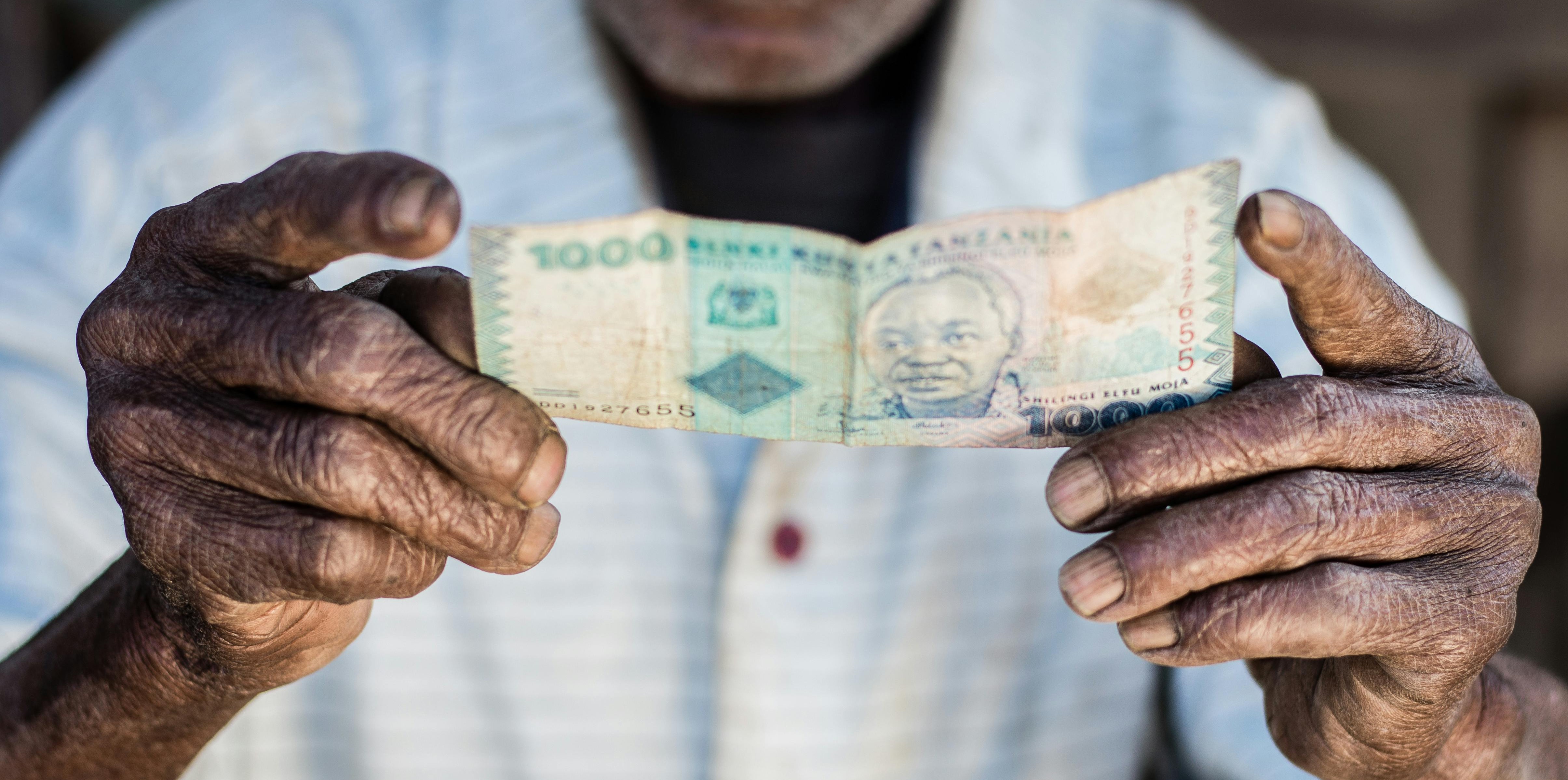
Largest study of Sanitation Economies launched to accelerate progress on SDG 6.2

UN-hosted Sanitation and Hygiene Fund and the Toilet Board Coalition to assess the potential value of sanitation opportunities in eleven countries to support partnership and investment growth
5 July 2022 - The Sanitation and Hygiene Fund (SHF) has commissioned the Toilet Board Coalition to prepare 11 country reports to examine the sanitation reality faced and opportunities for growth in Africa and Asia. Compiling the best available data and key expert insights, the unprecedented study of national sanitation economies at this scale will accelerate the transition towards the United Nations Sustainable Development Goal 6.2 - sanitation for all by 2030. Sectors and supply chains in rural, peri-urban and non-sewered urban settings will be researched in each country in order to identify opportunities for partnership and investment. In 2022 country reports are confirmed for Bangladesh, Benin, Sierra Leone, Nigeria, Kenya and Uganda. Following countries will be announced at a later date.
“There is today growing recognition that a transformative approach is needed to meet global and national targets on sanitation, hygiene and menstrual health, and any such approach must be grounded in evidence and data. By catalysing and growing national sanitation economies, we can unlock tangible impacts on health, education, gender equality, livelihoods and climate resilience and this study will quantify these for governments, and for investors,” said Dominic O’Neill, Executive Director at the SHF.
Presently, a quadrupling of progress is needed to achieve SDG 6.2 on time, highlighting the urgency for innovation in both the sector, and how we finance it. The reports will serve as a comprehensive dataset and narrative for governments and their stakeholders to stimulate interest and engagement in the Sanitation Economy and to assist in the overall process of moving toward the identification of investable propositions to strengthen it. Businesses within the sanitation sector can provide toilets and infrastructure for public and private, operation and maintenance (Toilet Economy), transformation of waste into value adding output products (Circular Sanitation Economy), digitising sanitation systems to learn about human behaviour and health (Smart Sanitation Economy) and have the potential to positively influence menstrual health and hygiene. These solutions comprise the Sanitation Economy.
The 11 reports will take learnings and inspiration from previous country reports released on India (2021), Kenya (2020) and Nigeria (2020)*. The reports estimated each country's 2030 expected sanitation market potential, India being $148bnUSD, Kenya faces the potential of $6.2bnUSD and Nigeria can reach $26.1bnUSD. When multiplying these figures across other countries with a high sanitation burden, the potential revenue and benefits are huge.
“The partnership between the Sanitation and Hygiene Fund and the Toilet Board Coalition will unlock sanitation intelligence, investment and demand at country level. The country reports including market estimates, insights and solutions are an important step towards national governments being able to position a country as investor-ready,” said Alexandra Knezovich, Managing Director at Toilet Board Coalition.
The world requires an urgent shift on how we tackle sanitation, a challenge that underpins several other SDGs linked to climate, livelihoods, economic growth, gender, global health, and education. The findings will present an opportunity for stakeholders to accelerate collective progress towards SDG 6.2.
---ends---
*The country reports on India, Kenya and Nigeria, released in 2020 by the Toilet Board Coalition in partnership with the former Water Supply and Sanitation Collaborative Council (Kenya & Nigeria) and the Asian Development Bank (India).
ABOUT
Toilet Board Coalition
Founded in 2015, the Toilet Board Coalition is a unique business-led partnership with the ambition to address the global sanitation crisis by accelerating the Sanitation Economy. We consist of multinational companies, internationally recognized sanitation expert organisations (non-governmental organisations, intergovernmental organisations, foundations, academics, etc.) and social investors (development banks and private foundations) that share a commitment to accelerating market-based solutions to enable universal access to sanitation (SDG 6.2).
We partner with the leading organisations to shape future smart, sustainable sanitation systems. We have framed the opportunity of the sanitation economy and have assembled growing evidence of significant new benefits for business and society across sectors - an estimated $148 billion annual opportunity by 2030 in India alone. Over the last six years the Toilet Board Coalition has worked with a variety of businesses providing sanitation products and services, touching more than 70 million people, and enabling over $22m in finance.
For more information, please visit: www.toiletboard.org
The Sanitation and Hygiene Fund
The Sanitation and Hygiene Fund (SHF) is dedicated to leveraging innovative finance to support countries in achieving Sustainable Development Goal 6, Target 2 - by 2030, achieve access to adequate and equitable sanitation and hygiene for all and end open defecation, paying special attention to the needs of women and girls and those in vulnerable situation. As a dedicated UN fund, the SHF drives change by working with those needing investment, and with those having funds to invest. We focus on country priorities to tackle complex issues that are limiting the sanitation economy.
For more information, please visit: www.shfund.org
Media Contact Details
Toilet Board Coalition
Name: Eveline Maertens, Communications Manager at the Toilet Board Coalition
Email: maertens@toiletboard.org
The Sanitation and Hygiene Fund
Name: Rucha Naware, Communications Specialist at the Sanitation and Hygiene Fund
Email: rucha.naware@shfund.org



